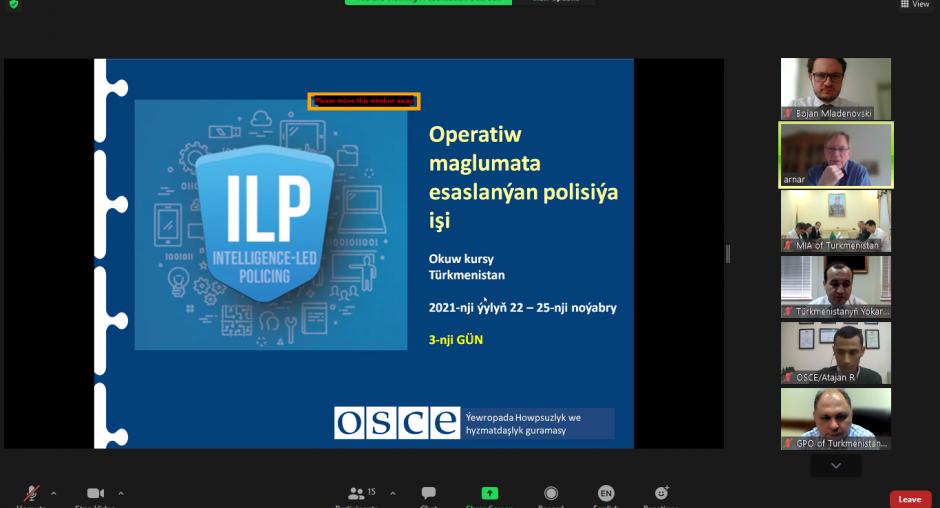International good practices in intelligence-led policing focus of OSCE-organized training course for law enforcement and criminal justice officials in Turkmenistan

The OSCE Transnational Threats Department and the OSCE Centre in Ashgabat jointly organized the online training course “Intelligence-Led Policing: from Theory to Strategic and Operational Practice” from 22 to 25 November.
Thirteen law enforcement and criminal justice officials from the Ministry of Internal Affairs, Ministry of National Security, Ministry of Justice, the General Prosecutor’s Office and the Supreme Court explored the theory of intelligence-led policing (ILP), crime analysis, assessments and decision-making procedures. They also discussed its strategic and operational components, and reviewed possible implementation of ILP in Turkmenistan.
“For many years, the OSCE Centre in Ashgabat has been actively co-operating with law enforcement agencies in Turkmenistan and their educational institutions in the framework of capacity-building projects aimed at in-service training of personnel and basic police training, and familiarizing with best national practices in OSCE participating States and guidelines developed by the Organization,” said William Leaf, Political Officer at the OSCE Centre in Ashgabat.
He added that this training course builds on the OSCE Guidebook on Intelligence-led Policing and provides trainees with an opportunity to gain a deeper understanding of ILP principles, as well as evaluate practical steps for its implementation.
Eduard Lokotunin, Police Affairs Officer on Combating Illicit Drugs and ILP Project Manager, emphasized ILP’s ability to address the complexities and transnational nature of crime as well as the greater demand for financial efficiency of law enforcement. He also emphasized that the model improves day-to-day proactive planning and police management.
The training course was organized in the framework of the OSCE extra-budgetary project “Building Intelligence-Led Policing capacities on regional and national levels in the OSCE area”. The project aims to enhance the use of intelligence-led policing involving 20 participating States from across the OSCE region. The training course is open to all interested OSCE participating States and Partners for Co-operation should they request its capacity-building support.
